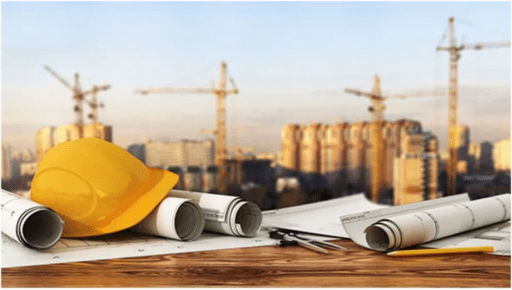Building for Success: Essential Considerations in Large-Scale Commercial and Industrial Construction

Large-scale commercial and industrial construction projects require meticulous planning, precise execution, and a deep understanding of industry-specific demands. From selecting the right construction companies to managing resources efficiently, every detail plays a crucial role in ensuring the success of the project. Here are some key considerations when embarking on large-scale construction ventures.
Construction Companies: Selecting the Right Partner for the Job
Choosing the right construction companies is one of the most important steps in any large-scale project. Construction firms that specialize in commercial and industrial builds bring the expertise needed to navigate complex regulations, site requirements, and project scopes. A reputable construction company can provide skilled labor, top-notch equipment, and a proven track record of delivering projects on time and within budget. Ensuring that the company has experience with similar projects and a strong portfolio will set the foundation for success.
Industrial Building Construction: Expertise in Complex Demands
Industrial building construction requires specialized knowledge and experience due to its complex nature. Experts for industrial building construction understand the unique needs of manufacturing plants, warehouses, and other industrial facilities. These projects often involve specific structural requirements, including high ceilings, heavy-duty floors, and ample space for equipment. Additionally, they must accommodate safety standards, proper ventilation, and the efficient flow of materials and personnel within the space. Industry experts can provide valuable insights to ensure that all aspects of the building meet operational demands and regulatory requirements.
Budgeting and Cost Management
Large-scale construction projects are significant financial undertakings, and careful budgeting is essential to ensure that costs do not spiral out of control. It’s crucial to have a well-defined budget that includes allowances for unforeseen expenses, labor, materials, and permits. Construction companies typically offer cost-estimation services, which help in forecasting the entire project’s cost. Additionally, cost-saving measures such as choosing sustainable building materials and exploring efficient construction methods can further optimize the budget while maintaining quality standards.
Timely Project Delivery
Time is money, especially in large-scale commercial and industrial construction projects. Delays in construction can lead to cost overruns, lost opportunities, and strained client relationships. It’s essential to develop a realistic timeline that considers all stages of the project, including permitting, design, procurement, and construction. Coordinating efforts between various contractors, suppliers, and stakeholders helps ensure that the project moves forward efficiently. Experienced construction companies employ project managers who oversee the process and adjust schedules as necessary to avoid delays and keep everything on track.
Sustainability and Environmental Considerations
Sustainability is increasingly becoming a critical aspect of modern construction projects. From reducing energy consumption to using environmentally friendly materials, there are numerous ways to ensure that commercial and industrial buildings have a minimal environmental impact. Sustainable construction practices not only align with environmental goals but also reduce long-term operational costs for the building owners. Incorporating energy-efficient systems, water conservation measures, and renewable energy sources are all considerations that should be addressed during the planning and design stages of the project.
Regulatory Compliance and Safety Standards
Compliance with local building codes, zoning laws, and industry-specific regulations is non-negotiable. It’s important to work with construction companies that have a solid understanding of the legal and safety requirements in place for commercial and industrial projects. This includes obtaining the necessary permits, ensuring the safety of workers on-site, and meeting health and safety regulations. Proper documentation and adherence to building codes are essential to avoid costly fines or work stoppages that could delay the project.
Communication and Collaboration
Clear communication among all parties involved in the construction process is vital for success. This includes not only the construction company and subcontractors but also the client, architects, engineers, and any other stakeholders. Regular meetings and updates ensure that everyone is on the same page, helping to identify issues early on and resolve them promptly. Collaboration between all parties helps keep the project running smoothly and fosters a positive working relationship throughout the entire process.
Conclusion
In conclusion, large-scale commercial and industrial construction projects require careful planning, skilled labor, and strategic decision-making. By selecting the right construction companies, prioritizing budget and time management, addressing environmental considerations, ensuring regulatory compliance, and maintaining clear communication, builders can set their projects up for success. Each of these considerations plays a pivotal role in delivering a finished product that meets expectations and serves its intended purpose for years to come.

